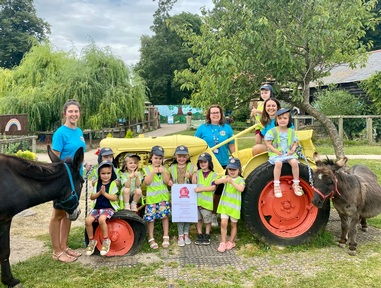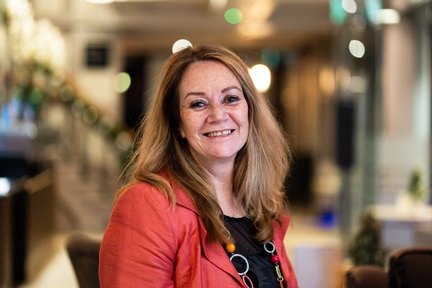Plan for nurseries in Wales to have highly skilled bilingual workforce
The Welsh Government has published its draft ten-year plan to develop a 'highly skilled workforce to improve early years education in Wales'.

The draft plan for the early years, childcare and play workforce in Wales states that in 10 years time, the Welsh Government wants to have a highly skilled workforce that is bilingual, highly regarded, understands how children learn and develop, structures activities so children develop to their full potential and are proactive learners in their own right.
Huw Lewis, Minister for Education and Skills, said: “Our plans for the early years, childcare and play sector are ambitious, but essential if we want to improve the quality of care we offer our children and to fully realise the potential of this committed workforce.”
He added: “We remain committed to developing a bilingual workforce, allowing parents/carers to access childcare in either English or Welsh. To achieve this, we propose to encourage those who wish to improve their skills in the Welsh language and offer training to increase the confidence of workers in English-medium settings in using basic Welsh in their day-to-day routine.
Voice Cymru welcomed the Welsh Government’s early years plan. Deborah Lawson, general secretary of Voice: the union for education professionals, which represents childcare, early years, teaching and education staff across the UK, said: “We welcome this announcement because it recognises the crucial importance of the early years and early years professionals in children’s development. The early years are indeed the foundation of all future learning and development.”
Director for Wales Nick Griffin added: “We are pleased that Mr Lewis recognises that early years professionals ‘play such a key role in supporting children during these important years’, that they should ‘receive the right level of support’ and that they should be ‘highly motivated and skilled and feel that they are valued’.
“However, if these proposals are to succeed, they must include not only training and professional development but also a proper career and salary structure for these dedicated and hard working, but underpaid and under-recognised, professionals.
“School staff, including support staff, are to be included in the new Education Workforce Council, alongside teachers, so they should all be treated equally in terms of career development and professional recognition.”
Purnima Tanuku, NDNA chief executive said: “We’re really pleased the Welsh Government is recognising the value of early years education and the specialist expertise of staff who work in the sector.”
Howevers she added: “While we all want to see a well-trained, qualified early years workforce and improved adult to child ratios, there are doubts as to how this will be funded. Many nurseries are struggling to meet rising costs and are losing money on free early education places. A more highly qualified workforce will demand higher salaries and further push up costs for parents unless it goes hand in hand with additional funding.
“There must be investment if the sector is to build a high quality workforce and make early years and childcare an aspirational career.”
NDNA’s 2014 annual nursery survey showed nurseries in Wales were making an average loss of £684 per child per year.
To view the consultation go to http://wales.gov.uk/consultations/education/10-year-plan-for-the-early-years-childcare-and-play-workforce/?lang=en
The consultation closes on 15 December 2014.
Latest News
 24-Apr-24
Find out the top nurseries in 2024
24-Apr-24
Find out the top nurseries in 2024
 06-Jun-23
UK's top nurseries in 2023 revealed
06-Jun-23
UK's top nurseries in 2023 revealed
 16-Dec-22
Winter Wonderland: Ice sculptures, aerial acrobatics and white knuckle rides
16-Dec-22
Winter Wonderland: Ice sculptures, aerial acrobatics and white knuckle rides
 28-Nov-22
5 mins with Caroline Wright, early childhood director at Bright Horizons
28-Nov-22
5 mins with Caroline Wright, early childhood director at Bright Horizons
 25-Nov-22
Camilla gives nursery children Paddington bears left as tribute to Queen Elizabeth II
25-Nov-22
Camilla gives nursery children Paddington bears left as tribute to Queen Elizabeth II